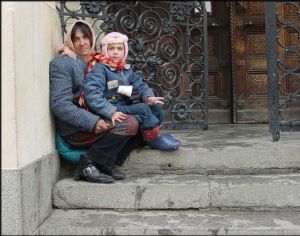News
Homeless group advises against giving to street beggars
This article is more than 9 years old.
Tossing a coin really doesn’t help, say advocates

No matter how hard it seems, advocates say you should walk away (photo: Venus)
Beggars are a common sight on Danish streets and trains.
Although it is often hard to walk away from those less fortunate, Sofie Bay-Petersen, an information officer at SAND, an interest group for current and former homeless people, is clear that not giving is the right thing to do.
“I believe that in a society like Denmark’s, it is possible to get help in other ways,” Bay-Petersen told Jyllands-Posten.
A chat instead of a coin
SAND’s philosophy is that tossing coins in a cup is a short term solution to a long-time problem and keeps people on the streets. Bay-Petersen said that a smile and a conversation would be more help to someone on the streets than a ten kroner coin.
“Ask them: ‘Why are you begging? Do you know that there is help available?”
Johannes Andersen, an associate professor and social scientist at Aalborg University, believes it is harmful to society as a whole to give money to beggars.
“It is quite logical that if they are rewarded, the number of beggars in Denmark will rise,” he said.
More beggars on the way
Andersen predicts that a shortage of work in eastern Europe will cause the number of foreign beggars to rise in Denmark over the next five years. Beggars, he contends, are often quite well organised.
“The strategy that seems to work well is to be more friendly and smile more at the Danes they are begging from, and they will toss a coin,” said Andersen.
Andersen stressed that it is up to the individual to decide how they handle begging, but that he would never give them any money.










































